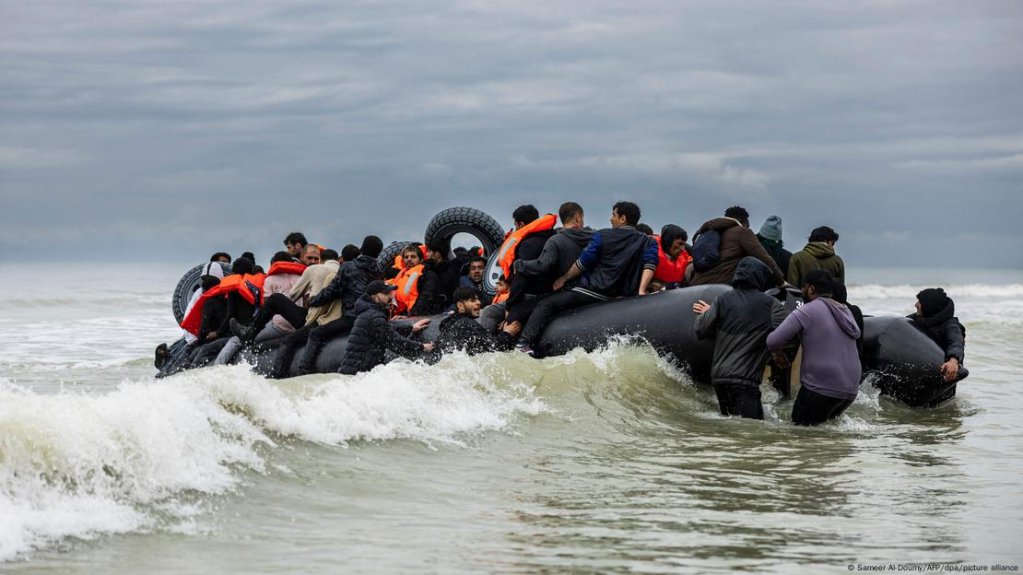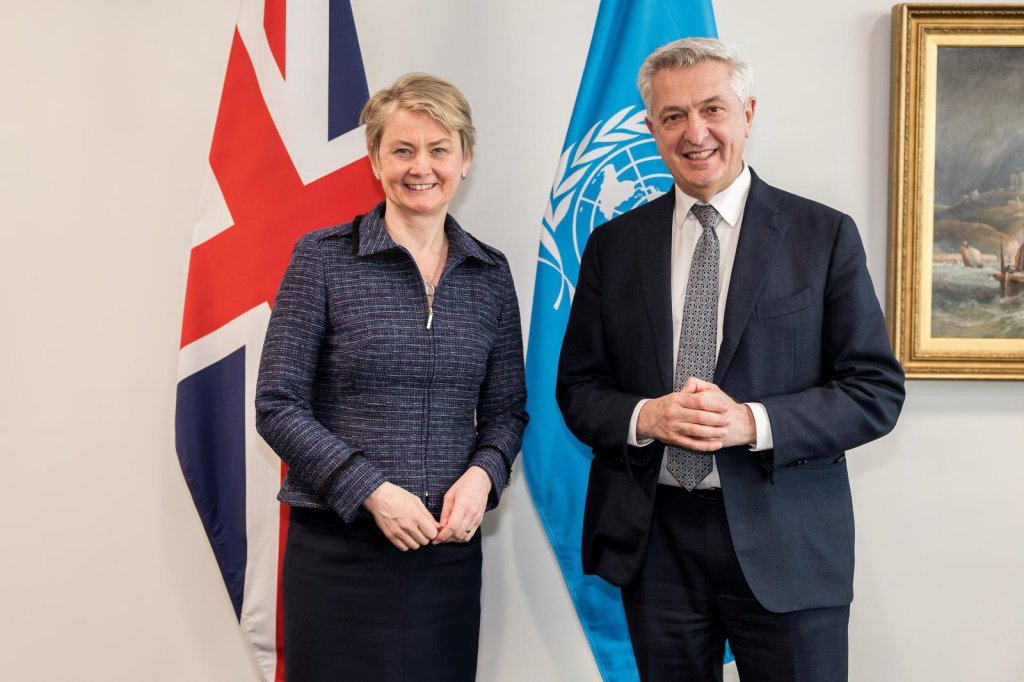The UN Refugee Agency UNHCR outlined last week the legal strategy behind its backing of the use of 'return hubs' as part of a migration strategy. The UK is hoping to implement them as it faces the highest number of Channel migrant arrivals in the first four months of the year since 2018.
On April 18, a male migrant was confirmed to have died while attempting to make the Channel crossing in a small boat. The announcement came as UK government data shows that more than 9,000 migrants have crossed the Channel to the UK since the beginning of the year.
The UK government has increasingly been searching for new strategies to reduce the numbers and overall migration to Britain. This includes revisiting the idea of sending asylum seekers or rejected asylum seekers to third countries for processing and returns. It is an idea that is now also reportedly backed by the UN Refugee Agency UNHCR.
In October last year, the UNHCR began to explore the idea in response to EU plans to set up returns hubs as part of their new pact on migration and asylum, due to be rolled out in 2026. But now Britain appears to want to find a way to make the strategy work even sooner.
According to a report in the Independent newspaper, the UN agency recommended monitoring to make sure human rights standards are "reliably met" at any hubs that might be created.
Furthermore, the country hosting the return hub would need to grant temporary legal status for migrants and the sending country would need to support it to make sure there are "adequate accommodation and reception arrangements," UNHCR told the Independent.
Read AlsoUK border security chief seeks to intercept smuggling networks
Deaths in the Channel
According to French data, more than 78 migrants died while trying to cross the Channel by various means in 2024. The UN Migration Agency IOM confirmed that between January 11 and March 20 this year, there were already ten migrant deaths reported in the Channel area.
Friday's fatal incident was the second death reported in the Channel in two days, reported the British left-leaning newspaper, the Guardian, potentially bringing to at least 12 the death toll for migrants on that route so far this year.
It was confirmed by the UK Border Force patrol, who said there had been a "medical emergency on a small boat in the English Channel" and that a man had been pronounced dead, reported the BBC.

A police spokesperson added that "Officers have launched an investigation to establish the circumstances leading to the man’s death."
The rest of the people on board the boat were “recovered to the UK,” said a spokesperson from the Maritime and Coastguard Agency to the BBC.
The man’s identity and his country of origin are yet to be established, reported the French news agency Agence France Presse (AFP).
Read AlsoUK: Parliamentarians push for digital ID to track and manage undocumented migrants
UK pursues new migration strategies amid rising numbers
More migrants have been recorded crossing the Channel to the UK in the first four months of 2025 than in the equivalent period in any year since 2018. According to British government figures, 9,256 migrants arrived in the UK after making their way across the Channel in small boats between January 1 and April 20 this year.
Last week, on April 15, 705 people arrived in 12 small boats in a single day. That represented the greatest number of people crossing in a single day so far this year.
In the face of these arrival numbers, the British government has been exploring different migration policies. Last week, it was reported that the British and French authorities are in talks to establish a kind of swap system, whereby the UK can send some Channel migrants back to France, in return for taking asylum seekers in France who are waiting for family reunification opportunities in the UK.
A spokesperson for the UK Home Office said that they had secured an agreement from the French "to deploy a new elite unit of officers at the coast, launch a specialist intelligence unit, increase police numbers and introduce new powers for the French authorities to intervene in shallow waters," reported the Guardian.
British Prime Minister Sir Keir Starmer and his top team have been in talks with various other European countries too. Last year, Starmer visited Italian Prime Minister Giorgia Meloni to learn more about the asylum processing centers Italy built in Albania. Now, the UK government is reportedly considering using another third country in a similar fashion to expedite returns and perhaps even house asylum seekers.
Read AlsoMigrant offshoring: the EU's plan to deport more rejected asylum seekers under scrutiny
Balkans potential site for returns hub?
In March, the UK’s Home Secretary, Yvette Cooper, met with the head of the UNHCR, Filippo Grandi. During the meeting, the two officials discussed how the British government might pay countries in the Balkans to house rejected asylum seekers from the UK.

In the past, plans to process asylum seekers or send them to countries like Rwanda has not only failed to come to fruition, but has also been mired in complicated legal processes and been heavily criticized by rights groups, including by the UNHCR, as something that would be against the international and European refugee conventions and asylum rights.
However, last week, the UNHCR mapped out how returns hubs could work while meeting the legal standards, reported dpa. A UK government spokesperson reportedly told dpa that this was "a helpful intervention that could make the legal pathway to some form of return hub model potentially smoother."
Read AlsoUK Foreign Minister visits Western Balkans and agrees further migration deals
Increasing focus on Italy's Albania model
In the document, the UNHCR also confirmed it was working out ways to "appropriately explore" how their agency could play a role in supporting countries to use returns hubs "as long as it does not conflict with its mandate to protect refugees."
In the first half of April, Italy sent its first contingent of 40 failed asylum seekers who are due to be returned to its asylum processing center in Albania. This was the first time that Italy had sent people who were previously on Italian soil to the returns center in Gjader. At least two of the group have subsequently been returned to Italy.
The UK and other European countries are observing the process closely, and reportedly hope to replicate something similar soon. Starmer told reporters at a summit in March that his government was looking at all methods that were "cost-effective" and "consistent with international law."
The Swedish government is also reportedly looking at the possibility of perhaps even using the Italian centers to return some of its own rejected asylum seekers.
